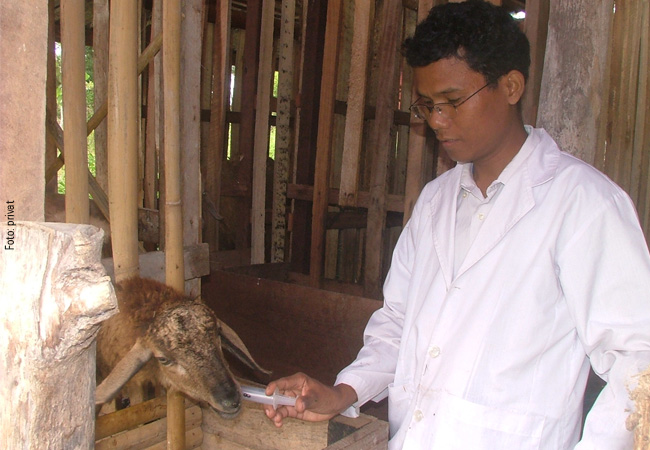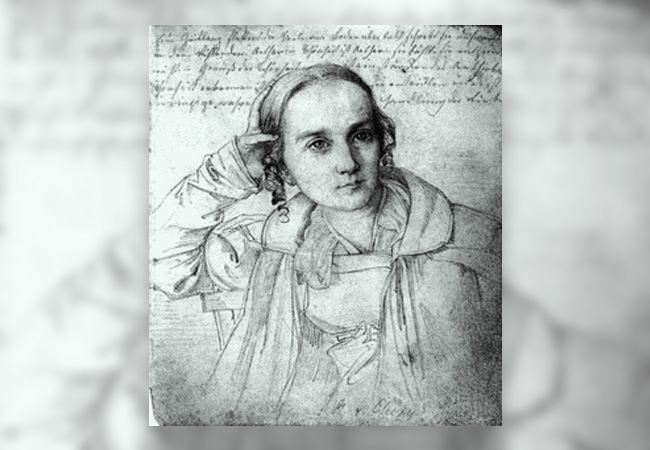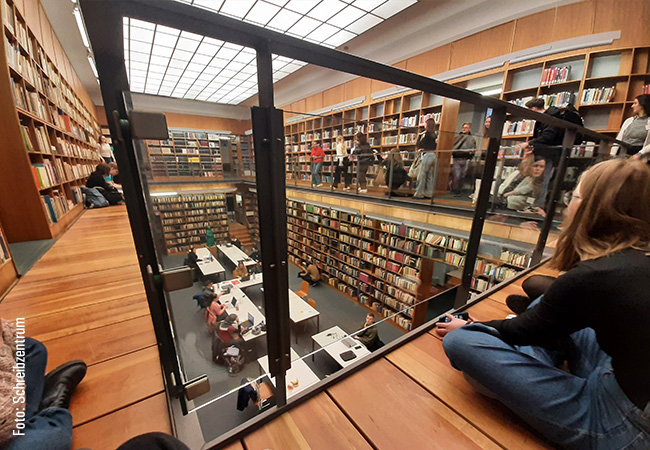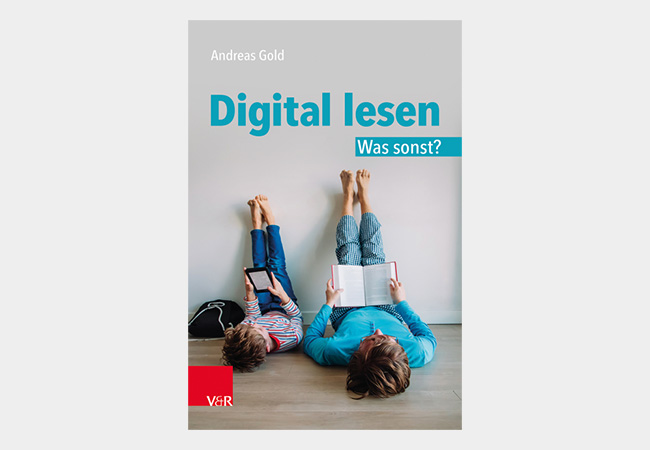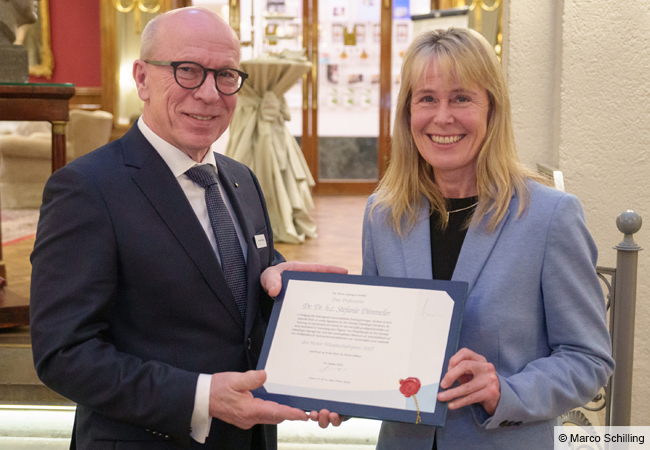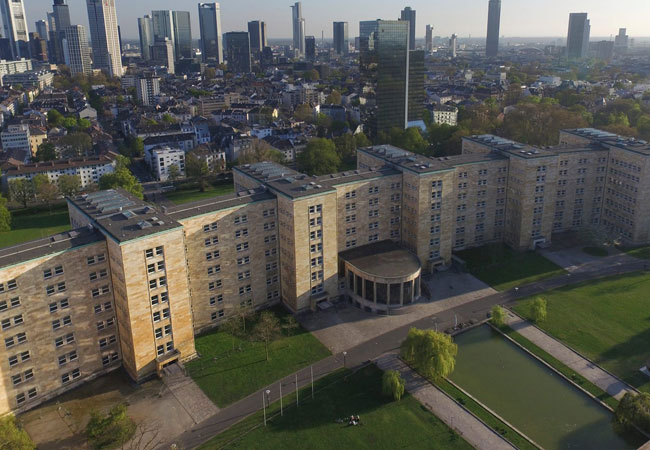Time and space for the two vast subjects of Law and Economics – that is what the Law and Economics Library, known as the BRuW (the abbreviation of its German name: Bereichsbibliothek für Rechtswissenschaft und Wirtschaftswissenschaften), offers. And both are much in demand.
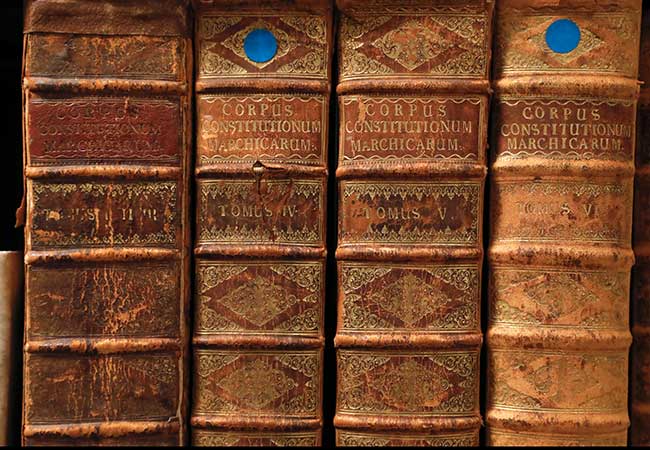
First-time visitors are easily amazed by the sheer size of the library for Law and Economics – including its long indoor walkways passing by the front windows, for example. The BRuW is one of the largest departmental libraries at Goethe University, occupying two lower floors of the Law and Economics Building. It is home to more than 1,000 workspaces, which are hard to come by and therefore desperately needed, especially during exam times, say BRuW director Dagmar Gärtner and her deputy Doreen Malitz. The Law and Economics Building was opened in 2008, combining two very large disciplines in one library. Taken together, the two subjects currently account for 10,000 students, or almost 25% of Goethe University’s entire student body.
Common ground
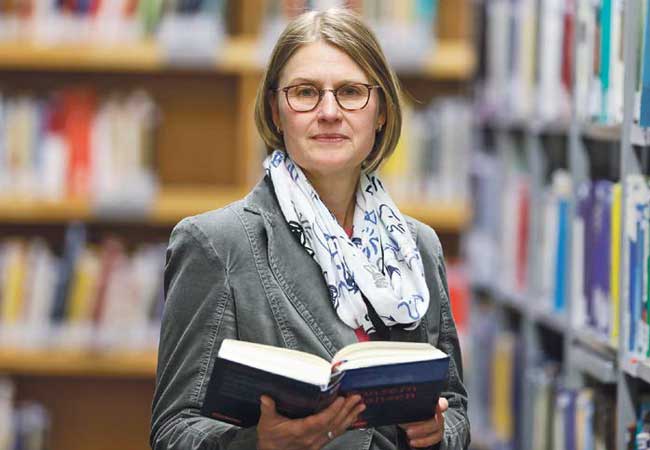
Was it an obvious decision to bring the two disciplines together in one library system? “There are very close connections in terms of content. Economics are traditionally grouped under the heading ‘politics of state,’ of which the subject of law was also historically a part. And in the adjacent House of Finance, economics and law were brought under one roof with the aim of mutual enrichment. We follow a similar logic in the Law and Economics Building, including in the fields of accounting, taxation, international law and business law,” explains economist Gärtner. Given the size of the two subjects, she adds, a consolidation with other arts or social science subjects would have been virtually impossible. That being said, from an organizational perspective, the two subjects are no good fit, because the dates of exams and essay deadlines always overlap towards the end of the semester.
Even though students constitute by far the largest group, other people use the BRuW, too. “We see a lot of lawyers from local practices in Frankfurt’s Westend looking for information. And of course law and economics are taught at other universities in the city as well. The Westend Campus is also home to the Max Planck Institute for Legal History and Legal Theory. Then there are those engaged in extra-occupational work who also use the library. Beyond that, a large campus filled with greenery that also has a good selection of cafeterias seems to be an attractive place for people to read or discuss things,” Gärtner says. During peak times, the library has even had to restrict access.
What about the problem of noise?
In mid-February, even this comparatively gigantic library was very busy, impacting building acoustics. With a view towards taking appropriate countermeasures, the library has since initiated a project researching its own use, Gärtner and Malitz proudly report: “Our library’s light and airy open-plan spaces are aesthetically pleasing. But the downside is that sounds can travel easily. If more than 1,000 people come together in the building, it can get very loud. Since we have had students complain to us several times, we naturally considered what could be done. First of all you have to look at how the library is used, determine users’ real needs, and know what ideas they have,” Malitz explains. The first step was to identify the loud places in the BRuW: For this purpose, students could indicate on site plans the locations that seemed particularly noisy. “Of course we can’t change the architecture, but some improvement is possible using small felt dividers that all users can set up at their workplaces. We also installed sound absorbers.” Alongside individual workstations, BRuW also features 19 group rooms, eight of which can be reserved by Goethe University students. The group rooms are primarily used by working groups to discuss a specific topic, for which they can use the media tools with which half the rooms have been equipped. “Some students also form groups so they can sit inside the rooms and work individually in a quieter setting. Of course that’s also fine for us,” Malitz stresses..
A place for old and exotic literature as well as digital media
Yet, the BRuW stands out from other departmental libraries not just because of its size. Gärtner and Malitz believe its opening hours are another USP. The BRuW is open seven days a week; opening hours on Saturdays and Sundays extend from 10 a.m. to 10 p.m. Fun fact: It turns out that Sunday afternoon at around 3 p.m. is one of the most popular times for learning. “Of course we can only stay open in the evenings and on weekends thanks to the help of our dependable student employees, there is no doubt about that,” Gärtner emphasizes. The BRuW’s unique features also include the special collections, such as a large collection on legal history containing some volumes dating back to the late medieval period, which have to be specially requested from the archive because they are such delicate paper tomes. It should come as no surprise that such rarities draw silent admiration from visitors. “They have stood the test of time amazingly well. By contrast, the first floppy disks, little more than 40 years old, cannot be read by today’s standard computers,” says Malitz. Another special collection is that of Japanese books on economics and law. “A colleague with Japanese roots takes care of this collection, since – even with transcription and translation aids – we still reach our limits and often require support from a native speaker.”
Not surprisingly, digitalization is also a major topic. But contrary to the faculty libraries, the two disciplines housed in the BRuW differ significantly when it comes to digitalization. While economics embraced digital publications quite early – partly because of the orientation to economics in English-speaking countries – the subject of law remains more paper-based, although digital advances can be observed here, too. “Some law professors would like to see more digital publications, partly because they can be accessed from anywhere. Others, such as those researching legal history, need both and like having both the print and the digital versions,” Gärtner explains. “In economics, the students in the initial semesters work a lot with scripts, which is another reason why they require comparatively little literature from the library.”
The BRuW staff are admittedly somewhat proud of the library’s virtual textbook collection. Every e-book is classified, and users looking for a book are given suggestions of other suitable e-books on the same subject. “It’s a bit like standing in front of a bookshelf and finding other books next to the one you were looking for. This kind of more or less random search within a topic doesn’t exist anymore in the digital world,” Gärtner explains.
Generalists with specialized knowledge
Malitz points out that a librarian with a Bachelor’s degree or a “Diplom” starts out as a generalist. “I personally began my career in the law section,” she says, adding that one has to gain the specialized knowledge of a discipline without having legal or economic expertise in the stricter sense. “Of course we can’t offer legal advice, but we know how to find literature on both subjects, how to conduct research, which digital sources are available, and how to use the databases.” In addition to normal guided tours, and digital introductions in the “LernBar” [German word play meaning both “learning bar” and “learnable”], the BRuW also offers special research training. “We tailor these services specifically to users’ needs. The things people ask about today might not be required a few years from now,” says Malitz. Sometimes Gärtner and Malitz notice that library users tend to take things like the provision of digital information for granted. “But even digital literature must be procured, cataloged and made available. That goes on behind the scenes, so to speak, but it still requires a lot of work.”
FACTS AND FIGURES ABOUT THE BRUW
Subjects:
Law (Faculty 01) and Economics (business administration, economics, business and economic education, and business informatics) (Faculty 02)
Workspaces:
1,062 workspaces, 19 group rooms. Eight group rooms can be reserved by Goethe University students.
Total stock:
Approx. 400,000 media items
Personal
19 Mitarbeiter*innen, davon aber nur 7 in Vollzeit und 13 bis 14 Studentische Hilfskräfte für die Öffnungszeiten
Staff:
19 members of staff but only seven full time, plus 13 to 14 student assistants to uphold the opening hours
Area:
Approx. 8,200 m2
Area:
Approx. 8,200 m2
Opening hours:
Mon. to Fri. 8 a.m. to 10 p.m.,
Sat. and Sun. 10 a.m. to 10 p.m.,
during examination periods to 11 p.m. on weekdays


